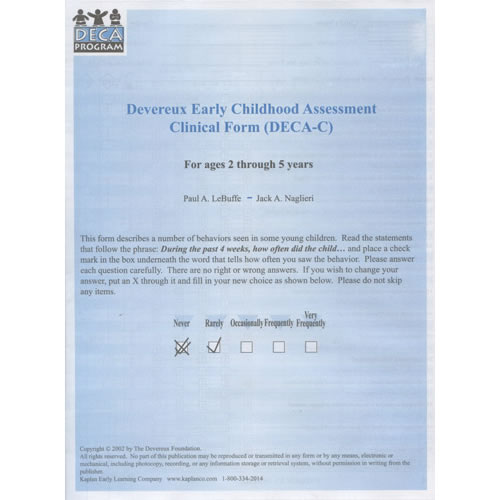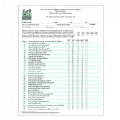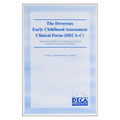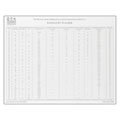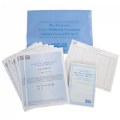DECA-C Record Forms - 30 Forms
The Devereux Early Childhood Assessment Clinical Form (DECA-C) is designed to be used by early childhood mental health consultants and other mental health professionals with select children, ages 2 through 5, who are already showing significant behavioral concerns. The DECA-C contains all of the strength-based resilience items and scales found on the Devereux Early Childhood Assessment for Preschoolers, 2nd Edition (DECA-P2), but also assesses social and emotional concerns, including: aggression, attention problems, emotional control problems, and withdrawal/depression.
The DECA-C is designed to be interpreted by a qualified mental health or special education professional. A customer qualifications form must be submitted before use of the DECA-C. For more information on these qualifications, click here.
DECA-C record forms also are available electronically in English and Spanish in the e-DECA Assessment and Planning System 2.0, a web-based application that makes it easy to accurately gather, score, and interpret data from the entire suite of Devereux Early Childhood Assessments.
The Devereux Early Childhood Assessment-Clinical Form (DECA-C) is an assessment of resilience in preschoolers ages 2 to 5 with social and emotional problems or significant behavioral concerns. Whereas the DECA is designed to be used with all children to promote healthy social and emotional growth, the primary purpose of the DECA-C is to support early intervention efforts to reduce or eliminate significant emotional and behavioral concerns in preschool children. The DECA-C may also be used to guide interventions, help identify children needing special services, assess outcomes, and help programs meet Head Start, IDEA and similar standards.
Customer Qualification Questionnaire
Assessment
Fast & Easy to Complete
The DECA-C is a 62-item scale that can be completed by either teachers or parents in about 15 minutes. Scoring is made simple by a user-friendly record form.
Scoring & Interpretation
To help ensure proper use of the tool and results, it must be scored and interpreted by a behavioral healthcare or special education professional.
Scales
A norm-referenced, behavior rating scale, the DECA-C contains all of the protective factors found in the DECA (initiative, self-control, and attachment), but also assesses behavioral concerns such as aggression, attention problems, emotional control problems, and withdrawal/depression. Measuring both a child's strengths and behavioral concerns, the DECA-C provides a balanced description of the child's behavior and allows for strength-based planning and strategy implementation.
Some of the preceding links are external to Kaplan Early Learning Company's web site. Kaplan Early Learning Company cannot attest to the accuracy of information provided by this site(s). Linking to a web site does not constitute an endorsement by Kaplan Early Learning Company, or its employees, of the sponsors of the site or the products presented on the site.
